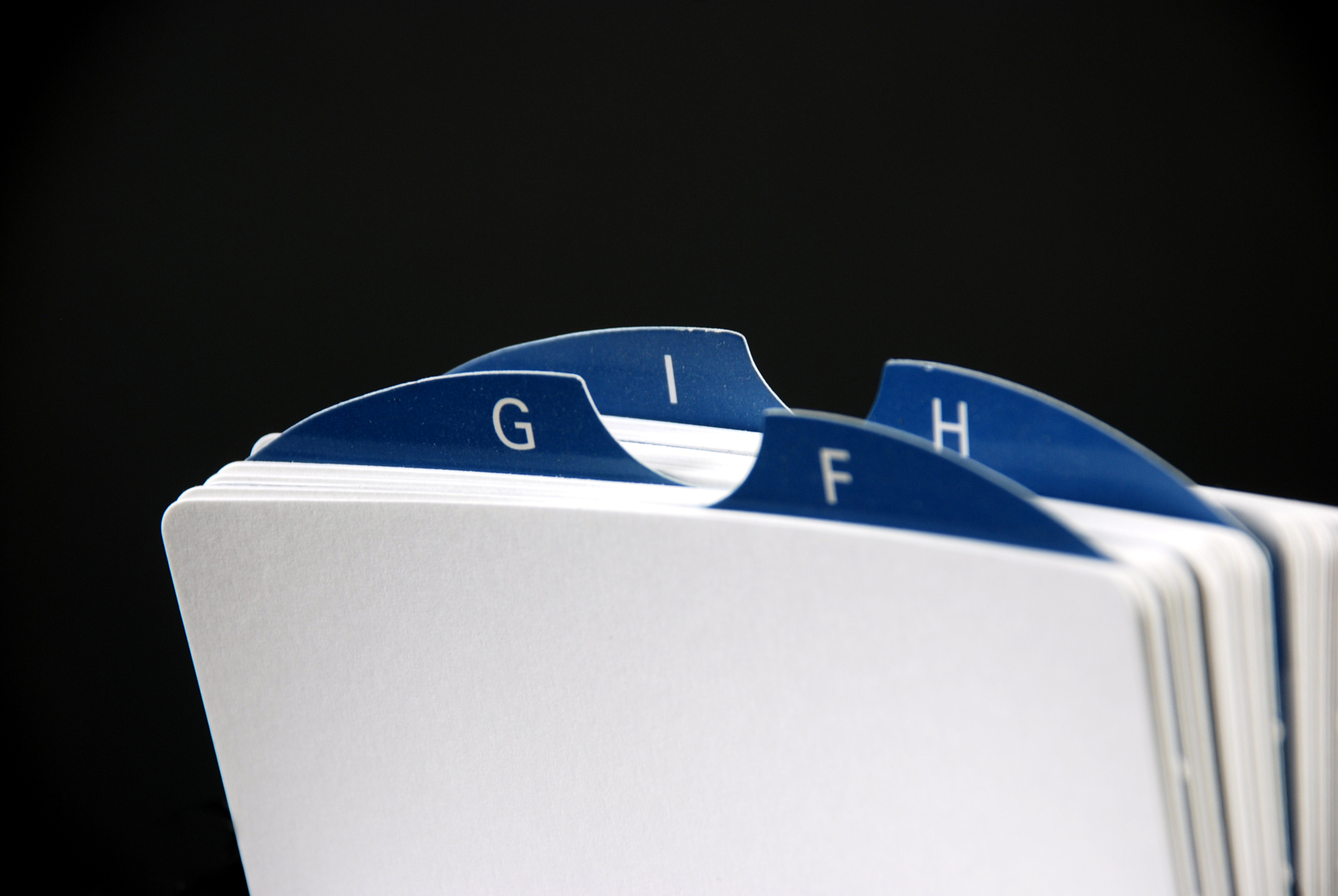Sign up for The Media Today, CJR’s daily newsletter.
Language Corner aims to inform and entertain, and often discusses words and phrases in the news. We hope to keep this column informative and entertaining without adding to anyone’s burdens.
YEARS AGO, WE MENTIONED a few terms that are still used even though the actions or objects they refer to are no longer around. Among those was “dial,” which we still do to call others on the phone, though we do it now on a “keypad.”
Back then, people had “address books” that were alphabetized lists of people we knew, frequently crossed out as people’s details changed, often with loose slips of paper stuck between the pages.
If you were a reporter, though, you probably had a “Rolodex,” a compact spinning barrel of (sometimes) alphabetized index cards with names of sources, an easy way to find a number when you needed it.
The “Rolodex” was so iconic that it’s in the Smithsonian; this video from the Cooper Hewitt Museum will show you the range of Rolodexes.
(No journalist ever had one so neat.)
While there were many knockoffs, the original was patented in 1956 by an engineer working for an American office-supply manufacturing company called Zephyr American. Its name is a portmanteau of “rolling” and “index.”
One would think that the Rolodex has gone the way of the rotary dial, but no. Many people hold on to theirs, preferring to flip the cards. Zephyr American was renamed Rolodex Inc. and still sells Rolodexes, among other office products.
PREVIOUSLY: Absolute power by any other name
And journalists and public relations people still refer to them, even if they’re too young to have ever used one. An editor for the New York Times Cooking site has “a mental Rolodex of countless New York Times recipes”; a corporate recruiter warns that people who “cling to our Rolodexes and continue to hang our hat on our ‘personal network’ of referrals and former colleagues” will “find themselves like the typewriter: obsolete.”
Meanwhile, a retiring Seattle Post-Intelligencer reporter “would rather develop his own angle for a news item, using his lengthy rolodex, than follow the herd”; while clients of the owner of an office furniture store “benefit from his vast experience and product knowledge and his rolodex of 600 lines of office furniture.”
The office-furniture seller in particular should know that “Rolodex” is still a trademark, and so should be capitalized. The knockoffs can call themselves “rotary card files,” but not “Rolodexes.”
Rolodex, né Zephyr American, was no slouch when it came to inventing useful office devices. The Rolodex was an improvement on a similar device called the “Wheeldex.” The company’s employees also invented the “Autodex,” a closed, flat phone directory with a movable pointer that sprang open when pointed to a particular letter. You can still find “Autodexes” on Amazon and eBay, though Rolodex no longer sells them. Ditto for the “PunchOdex,” a multi-hole puncher, though it’s available from other manufacturers.
But wait! There’s more! American Zephyr had other inventions, some useful, some less so. The “Swivodex” was an inkwell that swiveled when you dipped a fountain pen, so the ink would not spill. And last was the “Clipodex,” an early laptop: it was a flat surface for stenographers to clip to their knees to better take dictation.
The founder of Zephyr American, Arnold Neustadter, died in 1996. The headline on one obit: rolodex inventor dies after highly organized life.
ICYMI: Short guide to reporting security during a pandemic
Has America ever needed a media defender more than now? Help us by joining CJR today.



